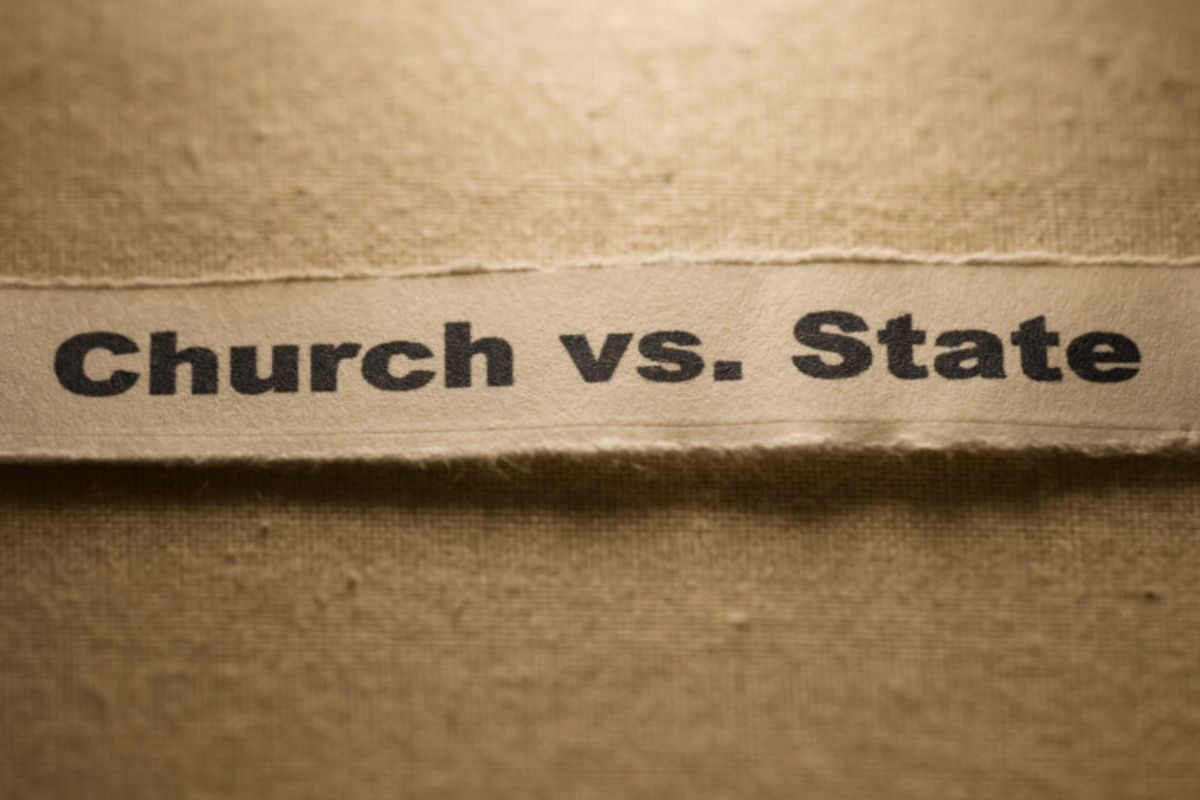Alabama’s Church-State Merger: The recent developments in Alabama have sparked a contentious debate about the intersection of church and state. This has raised crucial questions about the separation of powers and the protection of individual freedoms.
As Alabama grapples with the implications of this unprecedented merger, the potential ramifications extend far beyond state lines. This prompts a deeper examination of the delicate balance between religious beliefs and civil governance.
In a society where personal convictions often collide with public policies, the unfolding events in Alabama serve as a sobering reminder of the complexities inherent in navigating the treacherous waters of faith and politics.
Alabama Supreme Court’s Landmark Ruling on Frozen Embryos: Legal and Societal Implications
The Alabama Supreme Court’s groundbreaking decision to classify frozen embryos as children under state law has ignited debates on the legal and societal ramifications of this unprecedented ruling. This ruling challenges traditional legal definitions and practices surrounding reproductive rights and family law. By equating frozen embryos with children, the court has raised complex ethical and moral questions that extend far beyond the vitro fertilization (IVF) treatments.
This decision has significant implications for individuals undergoing IVF procedures, as it may impact their ability to make decisions regarding the disposition of unused embryos. Furthermore, the ruling blurs the lines between the legal status of embryos and that of born children, potentially setting a precedent that could have far-reaching consequences in other areas of law.
The classification of frozen embryos as children under state law also raises concerns about the intersection of religious beliefs and legal frameworks. This decision has prompted discussions about the role of religion in shaping legislation and the potential implications for the separation of church and state.
Legislative Crusade in Alabama: Impact Beyond Reproductive Rights
Amidst the Alabama Supreme Court’s landmark ruling on frozen embryos, Republican lawmakers in Alabama have embarked on a legislative crusade that transcends reproductive rights, aiming to embed a specific religious viewpoint into public institutions, libraries, and school curricula.
This legislative push reflects a broader campaign to inject a singular religious ideology into public life, extending far beyond the realm of reproductive rights. By seeking to influence public institutions and educational materials, these lawmakers are attempting to shape the cultural and social landscape of Alabama in alignment with their religious beliefs.
This endeavor has sparked contentious debates regarding the separation of church and state, with critics expressing concerns about the potential erosion of secular principles in governance. The impact of this legislative crusade goes beyond immediate policy changes, signaling a deeper ideological shift within the state’s legislative agenda and potentially laying the groundwork for future conflicts between religious and secular interests in Alabama.
Consequences of Religious Ideology in Governance: Risks and Realities
The governance, the intertwining of religious ideology poses inherent risks and stark realities that can shape policies and societal norms. This phenomenon, as seen in Alabama’s legislative landscape, can have far-reaching consequences that go beyond mere legislative decisions.
Some of the risks and realities associated with the fusion of religious ideology and governance include:
- Erosion of individual freedoms and autonomy
- Undermining of secular principles essential to a diverse society
- Impact on issues related to gender identity and LGBTQ+ rights
- Threats to bodily autonomy and personal decision-making
- Influence on the interpretation and teaching of history
These factors highlight the complex interplay between religious beliefs and the governance of a democratic society, raising questions about the appropriate boundaries between religion and state and the implications for the rights and freedoms of all citizens.
Historical Parallels and the Path Forward: Lessons from the Past
Drawing on historical parallels, the fusion of religious ideology with governance in Alabama prompts reflections on the trajectory forward and the lessons that can be gleaned from past experiences. The convergence of religion and government has historically been a contentious issue, with examples such as theocratic regimes in Iran and Saudi Arabia showcasing the potential pitfalls of intertwining religious doctrine with political authority. These parallels serve as cautionary tales, highlighting the risks of discrimination, conflict, and the erosion of individual rights that can arise when religious beliefs dictate state policies.
To move forward, it is essential to heed the lessons of history and prioritize the preservation of the separation of church and state. The United States’ founding principles emphasize the importance of religious freedom and the protection of diverse belief systems. By upholding the separation of church and state, Alabama and the nation at large can safeguard democratic values, ensure equality for all citizens, and uphold the pluralistic nature of society. Learning from past mistakes, it is imperative to chart a course that respects both religious convictions and the fundamental rights of all individuals.
News in Brief
Alabama’s Supreme Court decision classifying frozen embryos as children sparks debates on legal and societal implications, challenging traditional reproductive rights. Republican lawmakers go beyond reproductive rights, aiming to inject a specific religious viewpoint into public institutions in Alabama. Critics fear erosion of secular principles and a deeper ideological shift, raising concerns about the separation of church and state.
The intertwining of religious ideology in governance poses risks like erosion of freedoms, undermining secular principles, and influencing issues related to gender identity and LGBTQ+ rights. Historical parallels caution against potential pitfalls, emphasizing the importance of preserving the separation of church and state for democratic values and individual rights. Alabama faces complex challenges in navigating the delicate balance between religious beliefs and civil governance.
ALSO READ: Senate Sparks Debate With Statewide Bills in Local Government Committee

